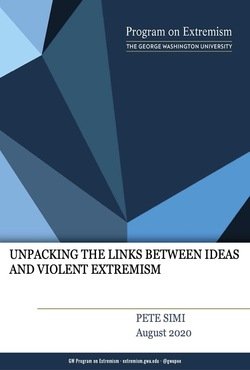By Pete Simi
A hypothetical “lone gunman” walks into a reproductive health care clinic spraying bullets from his assault rifle screaming that “abortion is murder!” and “the Army of God seeks revenge for the unborn fetuses murdered every year!” The shooting rampage leaves three individuals dead and 11 others injured. Additional weapons and explosives are discovered in the shooter’s van parked outside the clinic. Inside the van, a slew of literature explains how abortion is part of a liberal, feminist initiative to “enslave white Americans.” During the shooter’s interview with law enforcement later that day, he explains his motive was to “intimidate the general public by enforcing God’s law while sending a message to any other abortion killers that they might want to find another line of work.” In the days following the attack, scattered media coverage describes the gunman as “deranged,” “crazed,” and “unstable.” Few, if any, note the clear political and religious motivation nor do any of the articles describe the incident as “terrorism” or the shooter as a “terrorist.” What should we conclude about this scenario? The fact that the shooter was driven by ideological concerns seems obvious, yet the response suggests the link is apparently not so obvious. Understanding the relationship between ideas and violence presents several substantial challenges. These challenges are magnified given our tendency toward employing a highly inconsistent assessment of when and how ideas influence violence.
-
We tend to perceive a close connection between ideas and violence when the incident involves a Muslim perpetrator, while relying on a far different metric when the perpetrator is not Muslim. And the consequences are tremendous with major differences in terms of public perceptions and legal treatment.
Washington, DC: George Washington University, Program on Extremism, 2020. 12.


